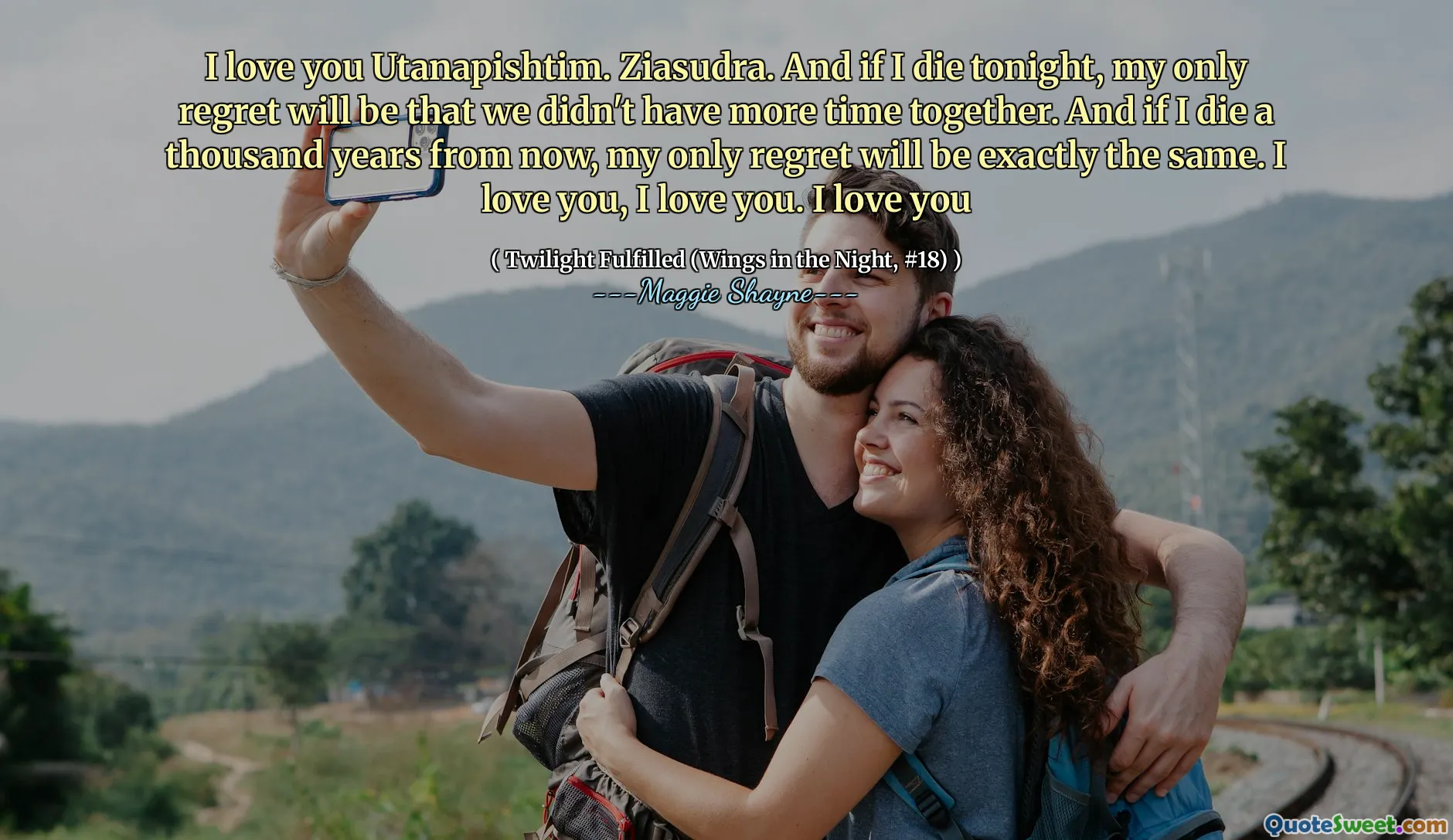
I love you Utanapishtim. Ziasudra. And if I die tonight, my only regret will be that we didn't have more time together. And if I die a thousand years from now, my only regret will be exactly the same. I love you, I love you. I love you
This quote resonates deeply with the universal theme of love's enduring nature beyond the constraints of time. The speaker's expression of affection towards Utanapishtim and Ziasudra—figures from ancient mythologies associated with immortality and survival—adds a layer of timelessness to this declaration. It emphasizes that love, when genuine, surpasses temporal boundaries and remains constant regardless of life's fleeting or eternal spans.
The recurring sentiment that the speaker's only regret, whether dying tonight or a thousand years from now, is the lack of more time together, underscores the profound value of personal connections. It speaks to the human desire for meaningful relationships and the impact they leave behind in the fabric of one's existence. The repetition of love emphasizes a feeling of raw vulnerability and sincerity, highlighting how love can transcend complexities and civilizations that have long since vanished.
The philosophical undertone, referencing mythological figures associated with divine traits, suggests that love has a divine or eternal quality itself—it persists through time, myth, and memory. The reflection subtly invites us to think about what truly matters: the relationships we cherish and the love we leave echoing through history and eternity. It encourages us to value our loved ones fiercely and openly, knowing that such feelings are some of the most significant aspects of our human journey.
Furthermore, the lyrical and poetic style elevates the emotion, making it not just a declaration but a universal truth that the essence of love outlasts tangible life and corporeal existence, reminding us all of love’s timeless power.






